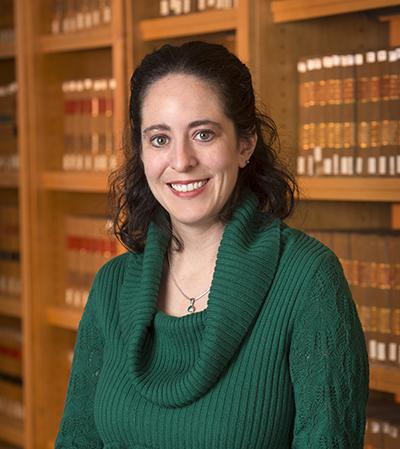
Blankley's article published by University of Miami Law Review
19 May 2023
Professor Kristen Blankley's article, "A Muddy Mess - the Supreme Court's Jurisprudence on Jurisdiction for Arbitration Matters," has been published by the University of Miami Law Review.
This article discusses the complications from the Court's 2022 decision Badgerow v. Waters, complicating federal court jurisdiction for arbitration issues.
Read the abstract below:
The Supreme Court’s 2022 Badgerow v. Waters decision attempts to create a bright-line rule regarding access to federal courts to hear arbitration matters. On its face, the Badgerow majority opinion reads like a straightforward exercise in textualism. Badgerow interpreted the judicial test for jurisdiction under the Federal Arbitration Act (“FAA”) provision regarding vacatur differently than it interpreted the jurisdictional test for a motion to compel under a different part of the statute. However, Badgerow leaves courts, which were already struggling to decipher the Supreme Court’s 2009 decision of Vaden v. Discover Bank, with a significant number of outstanding questions. Although these two cases can theoretically be read together, the two holdings leave open a host of practical difficulties that could lead to years of litigation on arbitration matters—matters that should otherwise be resolved simply and efficiently. This Article outlines the two decisions, how they are read together, and how they leave open inconsistencies. This Article then discusses the likely practical fallout from Badgerow, a proverbial “muddy mess.” The “muddy mess” has already begun to occur, based on early lower courts working with these two inconsistent precedents. This Article suggests legislative changes to create a consistent and predictable rule for motions dealing with arbitration practice.
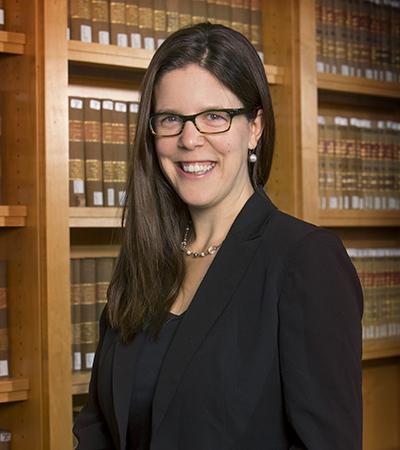
Shoemaker elected VP of ALPS
19 May 2023
Professor Jessica Shoemaker has been elected Vice President of the Association of Law, Property & Society (ALPS) at their annual meeting, hosted by the University of Southampton in England. ALPS is an organization for scholars working on interdisciplinary legal scholarship on all aspects of property law and policy. This includes real, personal, intellectual, intangible, cultural, personal, and other forms of property.
Professor Shoemaker also served as Program Chair for this meeting, which drew over 150 scholars from around the globe to share interdisciplinary work on all aspects of property law, theory, and practice.
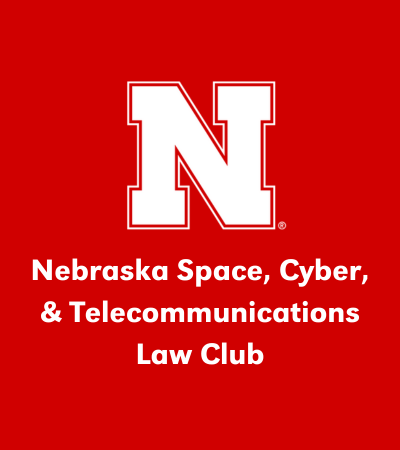
Space, Cyber, and Telecommunications Law Club Officers Elected for '23-'24
16 May 2023
The Nebraska Space, Cyber, & Telecommunications Law Club recently held elections to select leadership roles for the '23-'24 school year. Rising 3Ls Emma Schlenker and ZitaAnne Reno were elected as Co-Presidents. Rising 2Ls Brad Kimball and Keegan Huffman were elected Co-Vice Presidents, while Dakota Figueroa was elected Event Coordinator and Zach Hellen was elected Career Coordinator.
Formed in 2014, the Space, Cyber & Telecommunications Law Club works closely with the similarly named program within the College of Law. The club hosts special lectures, social events, and networking opportunities throughout the year. Notably, the club hosts an annual "Star Party" at Branched Oak Observatory every fall. Working closely with the Program Directors, Professor Jack Beard, Elsbeth Magilton, and Lauren Bydalek, the club helps to collaborate and provide unique opportunities for law students. Membership in the club is open to all students, and no relation to the formal academic program is required—all are welcome!
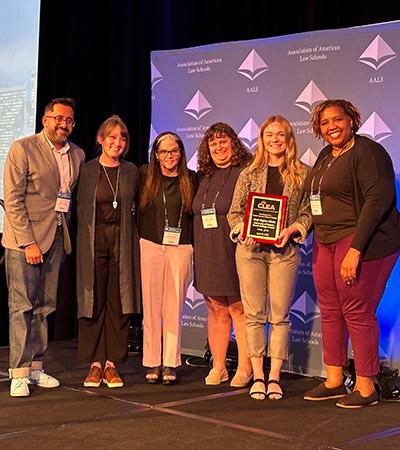
Jefferis, University of Denver team receive CLEA Award
11 May 2023
Professor Danielle Jefferis (second from left) and a team from the University of Denver Sturm College of Law have received the 2023 Clinical Legal Education Association's (CLEA) Award for Excellence in a Public Interest Case or Project. Professor Jefferis previously taught as a Visiting Professor in the Civil Rights Clinic (CRC) at Denver and was a member of a team of clinic faculty and student attorneys that advocated for the rights of Seifullah Chapman, whose attorney was initially seeking help in securing him adequate medical care.
The CRC team successfully challenged the constitutionality of Mr. Chapman's convictions, resulting in his release from prison in 2018 and reunion with his family after being separated from them for more than a decade. In 2022, Mr. Chapman received a $300,000 settlement from the Bureau of Prisons (BOP).
CLEA Co-Presidents (l and r, respectively) Professor Gautam Hans and Professor Lynnise Pantin presented the award to (2nd from l to r) Professor Jefferis; Professor Laura Rovner, Director, CRC; Professor Nicole Godfrey, former CRC Visiting Professor, currently Associate Clinical Professor at Michigan State University College of Law; and Annika Adams, JD'21, CRC Student Attorney 2019-20, 2020-21, currently associate at Highlands Law Firm.
For more on Mr. Chapman's case and the work of generations of CRC student attorneys: www.law.du.edu.
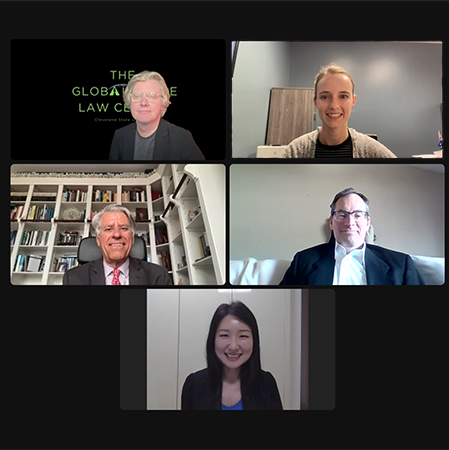
JSD Student Defends Dissertation on Korean Space Law
08 May 2023
Youngshin Ann (JSD ’23) successfully defended her dissertation entitled “National Space Legislation and Policy in the Republic of Korea: An Analysis of the Current Status and Suggestions for the Future Legal Regime” on May 8th, 2023. Ahn’s dissertation provides a comprehensive evaluation of Korean space legislation and recommendations for improvement. The analysis focused primarily on South Korea’s four domestic space laws, their corresponding regulations, and compared them to international laws and other countries’ domestic space legislation. The first of its kind in the Korean academic community, her dissertation highlights South Korea’s compliance with international obligations, and proposes possible revisions to South Korean space legislation for a better legal framework in the future. Ahn’s committee included Nebraska Law Professor’s Frans von der Dunk and Matthew Schaefer, as well as Mark Sundahl, Professor at Cleveland State University Law.
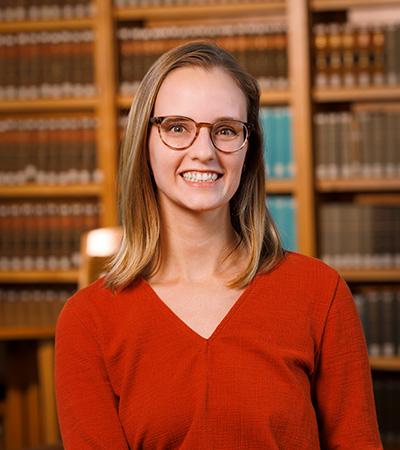
Bydalek presents on Space Law to the NSBA
08 May 2023
Lauren Bydalek, Associate Director and a former alum of the Nebraska Space, Cyber, and Telecommunications Law Program, presented a 1 hour CLE webinar for the Nebraska State Bar Association on May 4th, 2023. The presentation titled "Space Law 101" covered the basics of international and domestic space law. The presentation covered the fundamentals of the international space law, focusing primarily on the Outer Space Treaty and its principles of cooperation, peaceful purposes, and international responsibility. After a discussion of the international law, the webinar covered the relevant agencies and acts to consider when conducting launch and satellite activities from the United States.
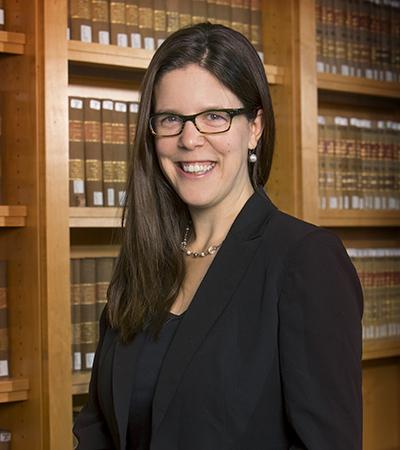
Shoemaker presents at AAG Annual Meeting
05 May 2023
Professor Jessica Shoemaker presented as an invited panelist at the American Association of Geographer (AAG)'s Annual Meeting this year. Her presentation, "Property and Place: Calibrating Commodification," was part of a special themed session on "Geographies of Real Property Across the Urban/Rural Divide."
Read the presentation abstract below:
This project of legal scholarship analyzes the role of property law in shaping patterns of increasing commodification of both urban and rural land ownership. As our most fundamental system for regulating access to or exclusion from specific spaces, property law choices profoundly structure our social relations and our physical, material world. In this project, I focus on how property law not only facilitates but actively encourages these more abstract and disembodied forms of ownership.
Despite popular rhetoric about the primacy of possession and human attachments to land, the reality on the ground includes numerous instances of real property rights recognized without any requirement of owner possession whatsoever and, conversely, extensive examples of real-time possessors who are denied any property protection. This project covers both rural and urban examples, exploring increasing institutional and foreign investment in American farmland (as rural landscapes further depopulate and agriculture gets increasingly industrialized) and private equity’s growing appetite for single-family housing (as America’s glaring wealth gap expands).
Property law is a common feature in shaping this more commodified form of land ownership across geographies, and so a more detailed analysis of how property does this work across diverse contexts can reveal important insights about which features of property design are most impactful and why. At the same time, thinking across these spaces can also reveal where contextual differences may matter for future law reform work, including different types of leasehold precarity and different capacities to implement and enforce more public oversight and land-use regulation.
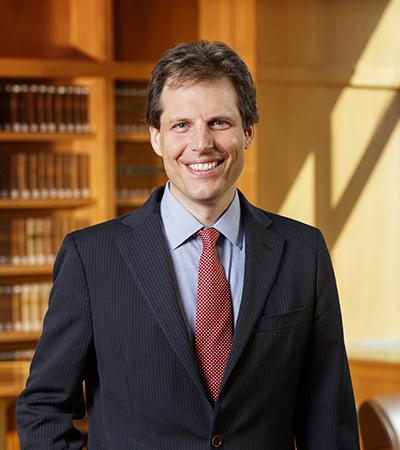
Berger presents at Cardozo Law School
05 May 2023
Earlier this year, Professor Eric Berger presented a draft paper at a workshop at Cardozo Law School in New York City.
Berger's presentation was entitled "Is This Still Scalia's Court?: The Evolution of U.S. Conservative Legal Thought." It explored ways in which the current Supreme Court has abandoned ideas championed by Justice Scalia, the icon of the American legal conservative movement.
Professor Berger's scholarship focuses on constitutional law. Much of his work explores judicial decision-making in constitutional cases, with special attention to deference, fact-finding, rhetorical strategies, and other under-theorized factors that help shape judicial opinions in constitutional cases.
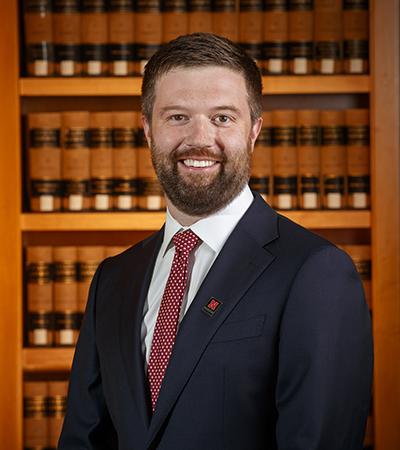
Tierney's article accepted by University of Pennsylvania Journal of Business Law
05 May 2023
Professor James Tierney's article, "Stockbroker Secrets," co-authored with Professor Benjamin Edwards of the University of Nevada–Las Vegas William S. Boyd School of Law, has been accepted in the University of Pennsylvania Journal of Business Law.
Read the abstract below:
In the market for financial advisers, ordinary people have a hard time searching for high-quality advice and monitoring what they get. To promote trust and deter low-quality advice, regulators disclose to the public information about advisers who’ve been complained about, sued, or had other red flags. This “BrokerCheck” solution to the search-for-quality problem has a well-known flaw: it produces too much expungement of information from the public disclosure database. Brokers routinely secure the deletion of information about previous customer complaints and settlements that others would find useful in comparison shopping among advisers based on quality. Recent scholarship has found that brokers who receive expungement are more likely to get in trouble again. The persistence of secretly recidivist stockbrokers has real stakes for markets and for investor protection.
At the end of July 2022, stockbroker regulator FINRA proposed modest reforms to this system that might improve the accuracy problem somewhat. This timely article argues that regulators should head back to the drawing board. Our theoretical framework for thinking about expungement counsels in favor of a doctrinal fix that would address the overproduction of false-positive and -negative expungements, and promote public participation and oversight. FINRA should carry out expungement only in a hearing panel procedure that can guarantee robust error correction and public participation through the Securities and Exchange Commission and the federal courts—and not in arbitration, as it currently does.
Drawing on literature about the tradeoff between adjudication and error costs in institutional design, we offer a unique theoretical criticism for carrying out expungement in FINRA arbitration—and a new reason for reform. Regulators’ decision to carry out expungement in arbitration generates significant and costly errors. These include enabling a pooling equilibrium among good and bad-type brokers competing for sophisticated consumers; redirecting capital allocation toward less productive uses; and (in the case of false negatives) imposing reputational consequences to brokers. These costly errors can be ameliorated with modest reforms to the administrative process. Our article reconstructs the policies behind the disclosure solution and identifies potential impediments to comparison shopping and monitoring for quality in the market for advice. Shifting to an administrative forum, we argue, would better implement those policies—and would promote participation in the processes of constructing and gatekeeping access to capital markets. We conclude with comments on the uncertainty for our proposal of an ascendant anti-administrativism in the federal judiciary that has trained its eye on securities regulators.
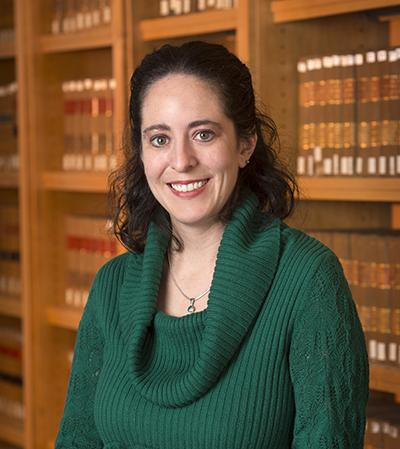
Blankley joins Community Justice Center Board of Directors
28 Apr 2023
Professor Kristen Blankley has joined the Board of Directors of the Community Justice Center (CJC) in Lincoln, Nebraska.
The CJC provides restorative justice practices to residents in Nebraska and Colorado including education, circle processes, and restorative dialog. The center provides these services both in the community and within prisons. Professor Blankley has extensive research and experience in restorative justice.
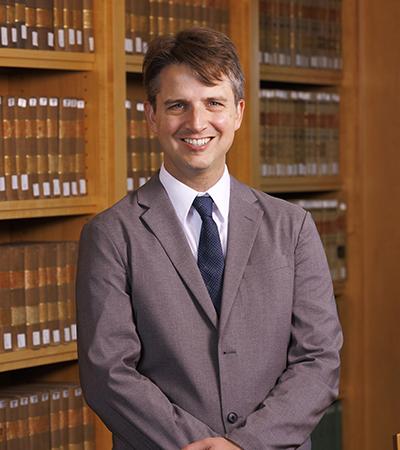
Langvardt's article accepted by Yale Journal of Law & Technology
28 Apr 2023
Professor Kyle Langvardt's article, "Crypto's First Amendment Hustle," has been accepted for publication by the Yale Journal of Law & Technology.
Read the abstract below:
Crypto industry attorneys have argued in litigation and before agency regulators that the First Amendment immunizes their line of business from ordinary market regulation. On the merits, these arguments range from weak to frivolous. But they nevertheless create value for the crypto industry in two ways. First, they help to drive a predatory marketing strategy that attracts retail investors with appeals to individual liberty and resistance to “financial censorship.” Second, they tee up arguments that financial regulators’ jurisdiction should be interpreted narrowly under the “canon of constitutional avoidance” and the “major questions doctrine.” Overall, crypto’s First Amendment opportunism interferes with public efforts to protect investors, collect taxes, and fight financial crime—and ultimately, it debases the First Amendment itself. At every opportunity, agencies and courts should debunk these arguments in terms that are clear enough for the industry’s target audiences to understand.
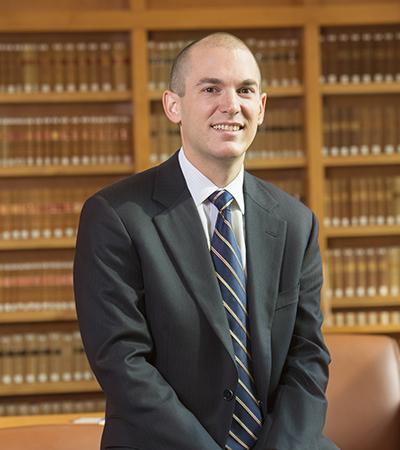
Thimmesch's article accepted by Florida State University Law Review
28 Apr 2023
Professor Adam Thimmesch's article, "Cooperative Federalism and the Digital Tax Impasse," co-written with Professor Orly Mazur at the SMU Dedman School of Law, has been accepted for publication by the Florida State University Law Review.
In the article, Thimmesch and Mazur analyze the economic, political, and conceptual challenges that have impeded state digital tax reform over the last three decades. They then survey historic reform and uniformity efforts in state taxation back to the early 1900s and conclude that it is unlikely that the states or the federal government will be able to achieve digital tax reform through unilateral efforts.
Instead, Thimmesch and Mazur suggest that those interested in reform should look to the lessons learned from cooperative approaches used by the states and the federal government in other areas of law. They discuss different models of cooperative federalism and how those approaches might best leverage the different competencies and interests of the states and the federal government. The article concludes that a cooperative approach is likely the best path forward and suggests design features for consideration in future reform efforts.
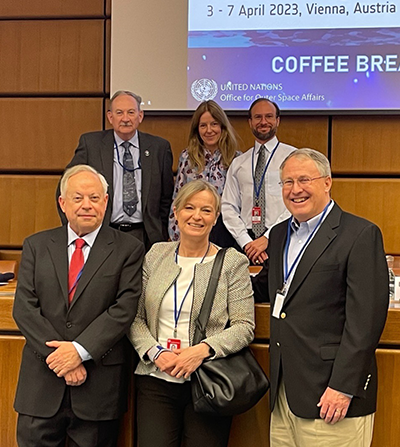
UN Invites Professor Beard to Speak on Planetary Defense
26 Apr 2023
Based on his recent scholarship, Professor Beard was invited by the United Nations Office of Outer Space Affairs (UNOOSA) to participate as a legal advisor on a panel of decision-makers at a conference at the Vienna International Center in April 2023. Professor Beard served on a panel examining legal obstacles related to the possible use of a nuclear weapon to divert an asteroid in order to prevent a catastrophic impact on earth. His work in this area includes a chapter entitled “Nuclear Nonproliferation and Planetary Defense” in the recently published book Legal Aspects of Planetary Defense, edited by Professor Irmgard Marboe.
The Planetary Defence Conference was organized by the International Academy of Astronautics in cooperation with UNOOSA, the Austrian Academy of Sciences, and the European Space Agency. The Conference focused on raising awareness and engage decision-makers on the topic of international collaboration in case of a potential asteroid impact hazard and associated policy and legal issues. The Vienna International Center in Vienna, Austria is one of the four UN Headquarters.
As in previous conferences, a hypothetical asteroid impact threat exercise was conducted, and NASA published details of the threat scenario for 2023 on its website, http://cneos.jpl.nasa.gov.
Experts at this conference also discussed NASA’s successful “DART” Mission in October 2022, in which the impact of a satellite successfully changed an asteroid’s motion in space. See https://www.nasa.gov/press-release/nasa-confirms-dart-mission-impact-changed-asteroid-s-motion-in-space.
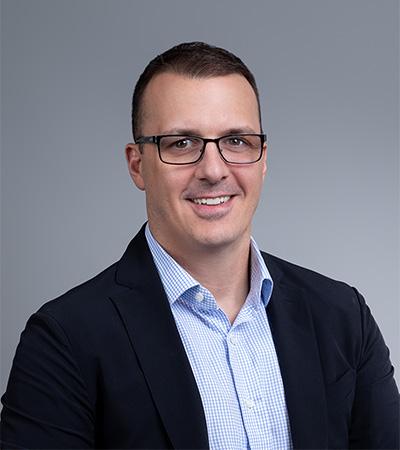
Hornung, ’04, honored as Alumni Master
25 Apr 2023
Adam Hornung, ’04, was presented as the Nebraska Law Alumni Master at the 2023 Nebraska Alumni Awards. Hornung is general counsel and chief compliance officer at Hillhouse Capital, one of the largest asset management firms in Asia. He has been with Hillhouse since its inception in 2012 and currently manages operational and global strategic initiatives while overseeing a team of more than 25 legal, compliance and tax attorneys around the globe.
Originally from Arnold, Neb., Hornung received his J.D. from the College of Law and previously served on the Lincoln City Council. Prior to joining Hillhouse and moving to Hong Kong, Hornung practiced at O’Melveny & Myers LLP in California.
Moving all around the world, Hornung has found that the adaptability he developed in law school continues to prove useful. Learning to work with different people in an unfamiliar environment is applicable both in the classroom and in the workplace.
“It helps you find commonalities in people,” he said. “You find out that people are very, very similar, regardless of where you are.”
Reflecting on his time at Nebraska Law, Hornung recognized the influence of Professor John Lenich in connecting him with the firm where he was hired post-graduation. He said the willingness of the faculty to go above and beyond to help students succeed sets the College apart.
“Professors here really do care quite a bit about you and are genuinely interested in your success as a person and as a lawyer and as someone who’s going to go out there and hopefully help the world,” he said.
In choosing a career path, Hornung said students should focus first on taking time to find what they’re passionate about. Figuring out how you can add value to the world and simultaneously feel fulfilled is imperative.
“The key is to find something that you’re willing to pour your heart into, and then put the effort in that it takes for you to become successful,” he said.
Although he credits some of his success to serendipity, Hornung said he hopes his conversations with current law students showed them that there are many opportunities to thrive.
“A lot of things happen that you’re not totally in control of,” he said. “But hopefully they can draw a little bit of comfort that they’re already on the right path.”
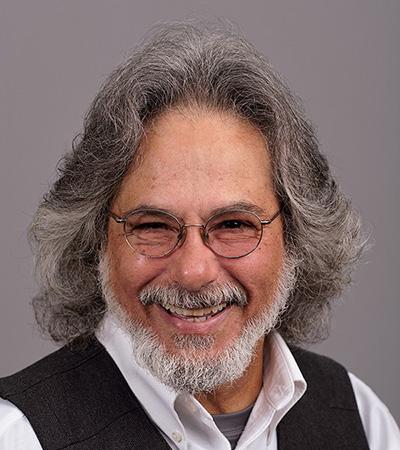
Soto, '84, receives Diversity Leadership Alumni Award
12 Apr 2023
Jose Soto, ’84, vice president for Access, Equity and Diversity at Southeast Community College (SCC), received the Diversity Leadership Alumni Award at the University of Nebraska-Lincoln’s Diversity, Equity and Inclusion Awards ceremony on April 10.
The award is designed for a UNL graduate who encompasses the principles of diversity, equity, inclusion, and social justice through their practices and principles. This could be through a profession, engagement with UNL, or civic engagement.
Interim Associate Dean for Diversity, Equity and Inclusion and Professor of the Law Library Stefanie Pearlman said Soto has been a fierce advocate in his role at SCC and on the Nebraska Supreme Court’s Access to Justice Commission.
“Jose is a strong voice on the Commission, encouraging us to constantly move forward with actions designed to make the courts more accessible to all Nebraskans,” she said.
Assistant Dean for Student Development Molly Brummond, ’03, said that Soto’s commitment to these principles permeates every aspect of his life. Soto is a founding member of the 2044 Board (now titled the Dean’s Advisory Board) at the College of Law, created to focus efforts on increasing the diversity of the college’s community and its approach to legal education.
“By lending his time and talent to efforts aimed at increasing access to justice, Jose provides thought leadership that results in Nebraskans of all backgrounds having access to our legal representation and resources,” she said.
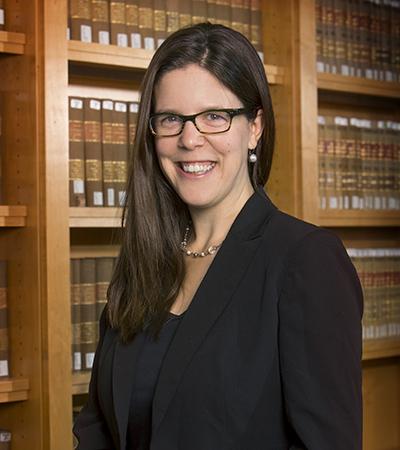
Shoemaker's article accepted by The University of Chicago Law Review
03 Apr 2023
Professor Jessica Shoemaker's article, "Re-Placing Property," has been accepted for publication by The University of Chicago Law Review. In the article, Shoemaker analyzes the relationship between property and placemaking through a series of both rural and urban case studies. She ultimately proposes a new framework for evaluating claims of place-based attachment in property law. This work has important implications for a range of real-world issues, including how the law may respond to increasing absentee investment in farmland and the fact that many more Americans are finding homeownership out of reach.
"I wanted to write an article synthesizing everything I've learned about property & placemaking, with stories about my daughters, my grandparents, and the sandhill cranes in Nebraska," Shoemaker said.
Read the abstract below:
This article analyzes the complex relationship between property and placemaking. Although zoning is regularly understood as the primary legal tool for regulating human environments, more fundamental land tenure choices also shape our collective relations. For example, the abstract and highly divisible nature of modern property estates drives many of the massive social and ecological changes we are seeing in real-time: growing institutional and foreign investment in American farmland (as rural landscapes depopulate and agriculture gets increasingly industrialized) and private equity’s rising appetite for single-family housing (as America’s glaring wealth gap continues to expand). Property law’s ongoing calibration of other property rights, such as the contours of an owner’s right to exclude, also create a cascade of real-world consequences, including how we register and accommodate (or not) the longstanding land relations of groups, cultures, and communities that are not (or no longer) recognized as legal owners and how we accommodate the access demands of individuals not otherwise born into hereditary wealth or land ownership.
Weaving together both rural and urban case studies, this article makes several important contributions about the centrality of property’s placemaking function. First, the article demonstrates how core property designs actively shape people-place relations, from early homesteading designs to ongoing refinements of specific property rights and responsibilities. Second, the article unearths the myriad ways that ideas about place and place attachment have been used across a range of land conflicts, with results that prioritize some connections while ignoring or rejecting others, often in unequal, inconsistent, and opaque ways. Finally, drawing from a series of examples—from Indigenous pipeline protestors to the absent and now-urban heirs of family farms and the emergence of new build-to-rent housing divisions—the article introduces a new taxonomy to evaluate the relative protection to afford various place and place-attachment claims.
This new framework separates the individual, collective, and ecological benefits of positive place relations from the risks of either too-much attachment (as in the case of hereditary land dynasties or property-based social castes) or land ownership without any attachment at all (as in the reimagination of land as an asset class for commodification and capture). This clear focus on placemaking puts property at the center of core social, economic, and climate challenges. It also offers novel solutions and entry-points to some of property’s perennial problems, including pervasive distributional inequities, while providing new language and a fresh lens for reimagining more just and sustainable property relations for our rapidly changing world.
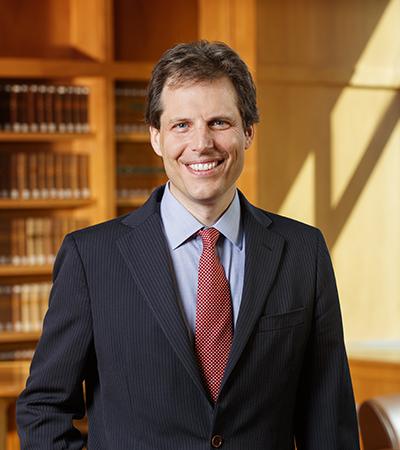
Berger's article accepted by Administrative Law Review
03 Apr 2023
Professor Eric Berger's article, "Constitutional Conceits in Statutory Interpretation," has been accepted for publication by the Administrative Law Review.
Read the abstract below:
For all its talk about textualism, the Roberts Court has a recent habit of ignoring statutory texts in especially important cases. In NFIB v. DoL, West Virginia v. EPA, and Brnovich v. DNC, the Supreme Court steered around broad statutory language to limit important federal legislation. In each case, the Court brushed aside inconvenient statutory texts, focusing instead on background constitutional concerns. Significantly, though, the policies at issue were not unconstitutional under current doctrine. The challenged policies, then, did not violate constitutional law so much as the conservative Justices’ constitutional sensibilities.
Admittedly, the Court has long interpreted statutes in light of constitutional anxieties, employing a variety of Constitution-based canons of statutory interpretation. The cases examined here, however, departed from those canons. NFIB and West Virginia ostensibly relied on the major-questions doctrine but transformed it from a modest interpretive aid into a reincarnation of the non-delegation doctrine. Brnovich did not even bother to invoke any of the constitutional canons, though amorphous federalism principles drove that decision.
While the Constitution-based canons of statutory interpretation have always afforded courts substantial discretion, these recent cases go much further. Rather than using constitutional canons to resolve statutory ambiguities, these decisions swept aside clear statutory language to advance the Justices’ constitutional conceits—that is, to further inchoate libertarian values inconsistent with contemporary constitutional law. Collectively, these cases paint an unflattering portrait of a Court willing to navigate around statutory text, constitutional doctrine, and longstanding interpretive canons to reach its desired outcomes.
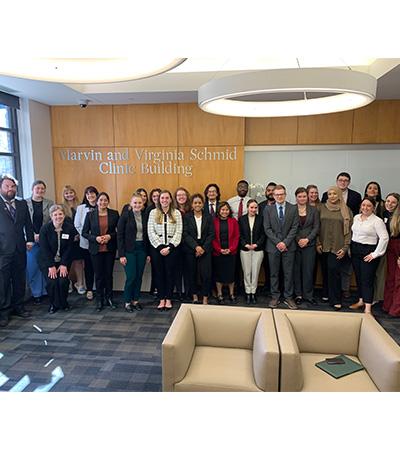
Naturalization Clinic volunteers provide assistance to community members
03 Apr 2023
Students in the Immigration Clinic at the College of Law held a Naturalization Clinic on Saturday, April 1 in the Schmid Clinic Building. The Naturalization Clinic has been run by students in the Immigration Clinic each spring since 2020. The purpose of the Naturalization Clinic is to help community members who are eligible to become United States citizens fill out the paperwork they will need to submit their applications to United States Citizenship and Immigration Services (USCIS). This year, students helped eight community members complete their naturalization applications.
The Naturalization Clinic was organized and run by the Immigration Clinic team of Jordan Mason and Dylan Severino, who recruited and trained volunteers, publicized the Naturalization Clinic in the community, ordered food and drinks, and otherwise served as organizers-in-chief of the Clinic.
Students volunteering for the Clinic arrived at 8:00 a.m. to receive instructions and packets with information on the community members whom they were helping. Those community members were served in two, two-hour shifts: one beginning at 9:00 a.m. and one beginning at 12:00 p.m. The Clinic ended at 2:30 p.m., concluding a very full day for those in attendance.
In addition to Mason and Severino, Immigration Clinic students participating in the Naturalization Clinic included Ainoa Chacon de Anzola, Shana Dregenberg, Veronica Parish, Christopher Schmidt, Kelly Shanahan, and Nicole Tracey. Immigration Clinic students provided support and advice for non-Immigration Clinic student volunteers, conducted background checks on applicants, and otherwise provided major support for the day’s operations.
Twenty-one law students volunteered to help with the Clinic. They met with clients, helped them fill out their paperwork, and gave them packets containing the next steps involved in submitting their naturalization applications. Those students volunteering were Fatima Al-Haidari, Jennifer Craven, Lionel Dalmeida, Anureet Dhillon, Mason Ellis, Rachel Espinosa, Courtney Fuller, Aurora Garcia, Jose Jaimes, Cassandra Kostal, Emma Lentsch, Elliott Lund, Dania Ontiveros, Abbey Penton, Jordyn Piper, Erin Rose Reales, Karsen Sims, Rebecca Stading, Olivia Steffensen, Erik Strickland, and Indy Talken.
Jodi Garrelts, a 2015 graduate of the College of Law, Immigration Clinic alum, and attorney at the Immigrant Legal Center in Lincoln, also volunteered to help review paperwork before it was finalized, printed and given to participants.
The Immigration Clinic wishes to thank Garrelts and all of the students who volunteered for the Naturalization Clinic. And to those community members whom they helped, best of luck as you pursue U.S. citizenship!
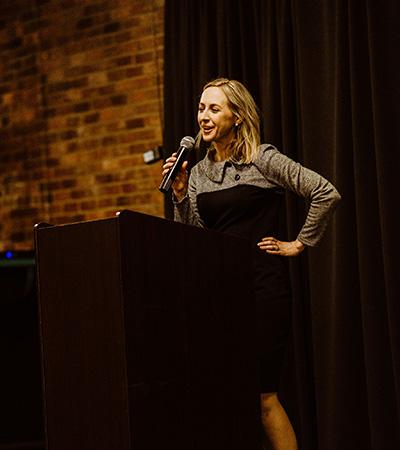
Women's Law Caucus raises $13,000 at Dean Anna Shavers Memorial Auction
20 Mar 2023
The Nebraska Law Women's Law Caucus held its annual charity auction on March 4, recently renamed in honor of Assistant Dean of Diversity and Inclusion Anna Williams Shavers. The auction brought in $13,214 benefiting Voices of Hope, the Friendship Home, the Nebraska Public Interest Law Fund, and the Anna Shavers Scholarship Fund.
The event featured speakers Angie Hilsabeck, Director of Strategic Partnerships at the Friendship Home; Natalie Roberts-Day, Executive Director at Voices of Hope; Kala Mueller, Director of Public Interest Programs at the College of Law; and 3L Miranda Cannon, Women's Law Caucus President. Law student Steffany Lien, the University of Nebraska Feature Twirler, performed a baton routine in between speakers.
A silent auction offered goods from local businesses, while a live auction featured items and experiences from faculty members and firms. Prizes included brunch with Assistant Dean for Student Development Molly Brummond, a round of golf with Professor James Tierney and a grill out with the law library staff. Nic Zito, brother of 2L Izzy Zito (Women's Law Caucus 2L Treasurer), served as the auctioneer.
The Women's Law Caucus thanks the following underwriters:
Caswell, Panko & Westerhold, LLC
Cline Williams Wright Johnson & Oldfather
Fraser Stryker PC LLO
Woods Aitken LLP
ACLU of Nebraska
Berry Law
Jantzen Law Office
Koley Jessen PC LLO
Mattson Ricketts
Suiter Swantz IP
Mary Kay Hansen Law &
Mediation PC LLO
Bruning Law Group
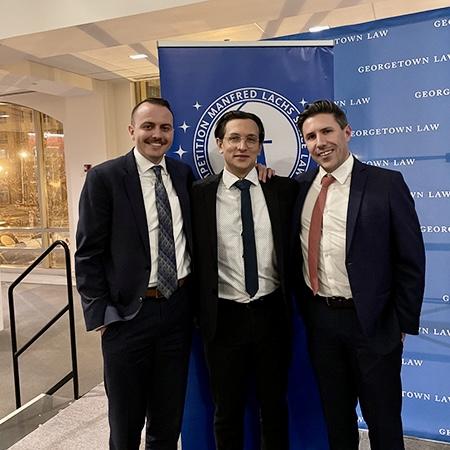
Nebraska Law students place in semi-finals at Space Law Moot Court Competition
20 Mar 2023
Nebraska Law students Matias Cava ’24, Grant Jones, ’24, and Jon Natvig, ’23, competed in the 2023 Manfred Lachs Space Law Moot Court Competition. This year’s competition was the first to take place in-person since 2019 in Washington D.C. After two preliminary rounds, the team advanced from the first day of the competition with the top score in their division. The team then competed in quarter finals and semi-finals, narrowly missing the final round.
This year’s team was coached by Associate Director Lauren Bydalek and Professor Frans von der Dunk. The competition was based on a hypothetical space law dispute before the International Court of Justice, dealing with issues of liability, violations of the outer space treaty, and other UN treaties. Participating teams submitted formal written arguments for both the Applicant and Respondent States before competing in oral arguments at Georgetown Law Center.